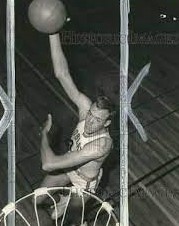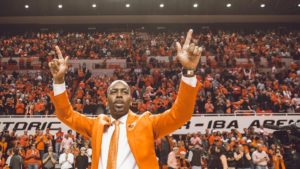We are keeping our fingers crossed in the hope that we can return to a “normal” version of college basketball this fall: fans in the stands, announcers without masks, etc. Nobody knows exactly what is going to happen but we will try to restore some order with season previews featuring the best players/coaches in the country. We continue our coverage with new Indiana coach Mike Woodson. HoopsHD’s Jon Teitel got to chat with Coach Woodson about getting hired at his alma mater and his expectations for this season.
You were born/raised in Indiana: what made you choose Indiana for college? IU was the only place I wanted to play at and Bob Knight was the only coach I wanted to play for.
What made Knight such a great coach, and what was the most important thing that you ever learned from him? He taught us to expect the most of ourselves.
In the 1979 NIT title game you had a 1-PT win over in-state rival Purdue: what did it mean to you to win a title? Anytime you beat Purdue regardless of the circumstances it is a great thing!
That summer you won a gold medal and were the captain/leading scorer for team USA at the Pan Am Games: could you have ever imagined that 42 years later both you and your then-assistant coach (Mike Krzyzewski) would both be college basketball coaches?! I have never really thought of it that way.
In the summer of 1980 you were drafted 12th overall by the Knicks (1 spot behind Kiki Vandeweghe): did you see that as a validation of your college career, or the realization of a lifelong dream of reaching the NBA, or other? It was a lifelong dream to play in the NBA: I am proud of what I accomplished as a player and as a coach.
In 2004 as an assistant to Larry Brown in Detroit you won an NBA title: where does that rank among the highlights of your career, and are we going to see Memphis on your schedule anytime soon? It remains one of the biggest highlights of my career: that team played the best defense that I have ever seen. As far as Memphis: there are a lot of moving parts to scheduling.
After spending almost 25 years as an assistant/head coach in the NBA you were hired as head coach at your alma mater last March: how is it going so far, and what is the biggest difference between coaching in the NBA and coaching in college? It has been a great process and everything I have hoped for.
Trayce Jackson-Davis was 3rd-team All-Big 10 as a freshman and 3rd-team All-American as a sophomore: what makes him such a great player, and do you think that he is good enough to be national POY as a junior? He just needs to be the best player for himself and we will see where that takes him.
What are your goals for this season, and what are your expectations for this season? We want to play our best and be both the best-prepared team on the floor as well as the hardest-playing team.








